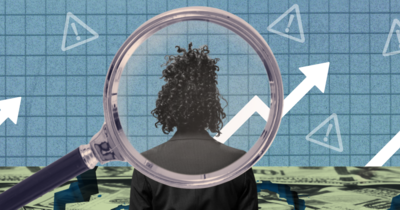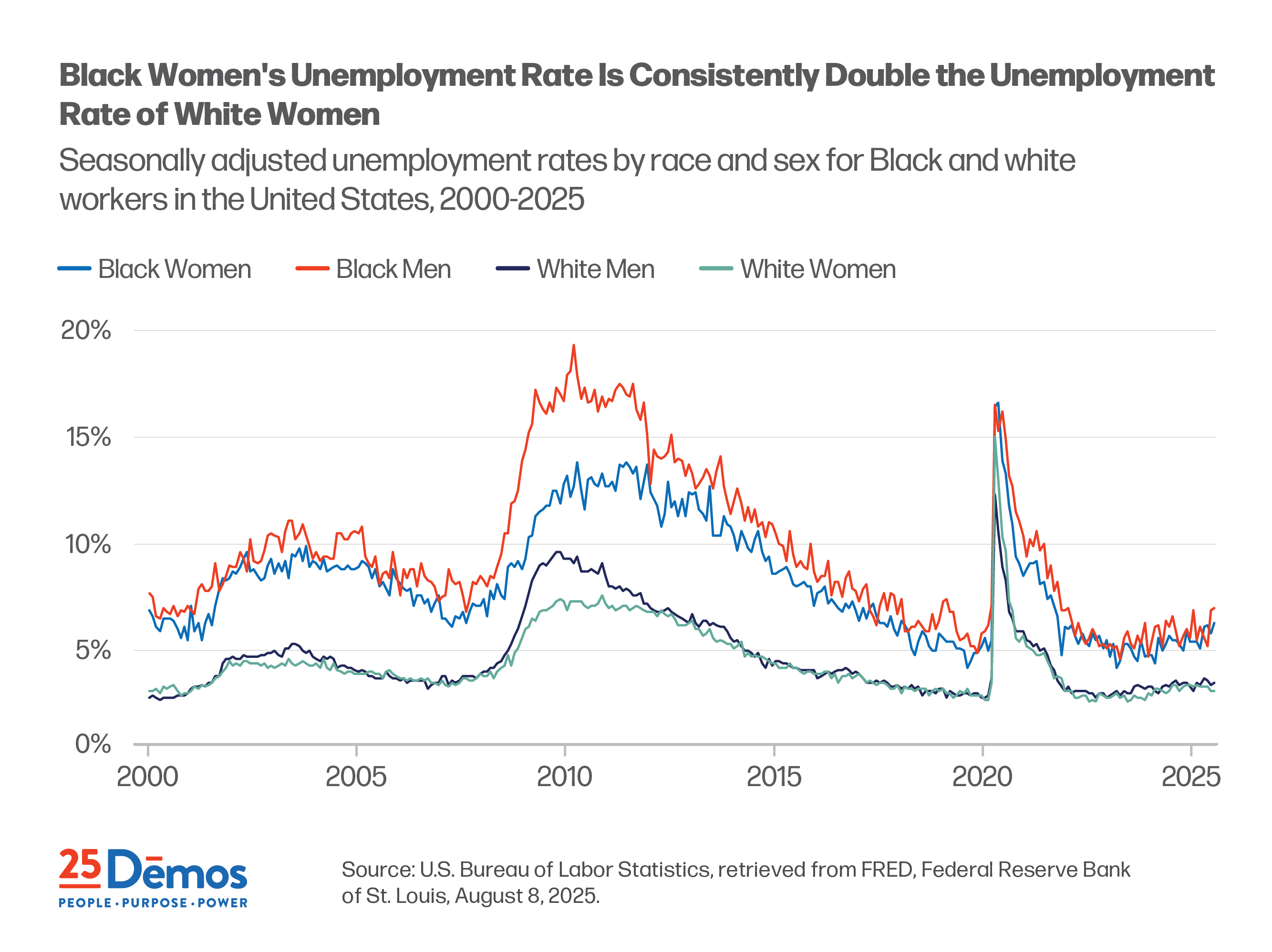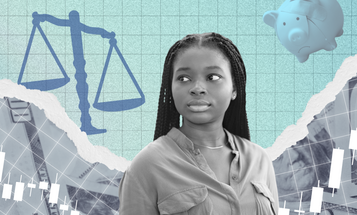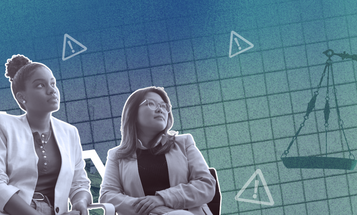
One Number Can't Explain the Economy, but the Black Women's Unemployment Rate is a Good Place to Start
For decades, labor market data has shown a difficult truth: Our economy has never worked for everyone—especially Black women.

Last month's jobs report raised real concerns about where the economy is headed. Job growth came in below expectations, much to the chagrin of President Trump, who fired the commissioner of the Bureau of Labor Statistics last month in an anti-democratic attempt to hide the truth from the public. The overall unemployment rate ticked up, and gains from previous months were significantly revised downward. But the topline numbers don’t reveal the whole picture. For decades, labor market data has shown a difficult truth: Our economy has never worked for everyone, especially Black and brown people—and Black women in particular.
Complete reporting on accurate data is essential for understanding the state of the economy—how many jobs are available, who is getting them, who is being left out, and the effects on those communities. Take one indicator: the unemployment rate for Black women. In July, it increased to 6.3%, the highest rate it's been since 2021. That's over double the rate for white women. As the graph below shows, this gap isn't new—it's been persistent for decades, reflecting structural barriers and systemic racism in the labor market.
When the economy is strained, Black women are among the first to feel it.
These numbers don’t tend to dominate headlines, but they should. As shown above, both Black men and Black women face persistently high unemployment rates. Further, Black women are overrepresented in essential but often undervalued sectors, including care, retail, service, and education. These are also the sectors where wages are lower and labor protections are weaker. When the economy is strained, Black women are among the first to feel it. That’s why we must rethink how we assess the economy, not just through conventional topline indicators but through measures that reflect reality for the most vulnerable workers in the labor market.
One such approach is the Black Women Best framework, the idea that when Black women are thriving in the economy, everyone does better. Black women's work is concentrated in sectors that are the backbone of our economy, so when they see gains like higher wages, stronger protections, and better working conditions, those benefits ripple outward. Conversely, when Black women are being pushed out or shut out, it’s not a side issue; it’s a warning sign that our economic system is failing.
In the current policy context, we anticipate serious harm to the American public—harm that will hit the pocketbooks of Black women first. As the recently passed "One Big Beautiful Bill Act" begins to slash funding for health care, food assistance, and other critical supports, Black workers and other workers of color will face increased economic vulnerability. These cuts threaten critical public services and destabilize the sectors where many Black women work, all in order to further enrich the ultra-wealthy and corporations. Instead of investments in basic protections that promote stability, we're seeing rollbacks in the very institutions that safeguard economic security and protect workers – from unions and labor enforcement agencies to the statistical agencies that track economic trends. The decimation of these institutions will affect us all, but it is likely to hit Black women first and hardest.
An economy built on exclusion isn’t strong—it’s broken.
Viewing the economy through a Black Women Best lens helps to refocus our collective understanding of what an inclusive, just economy requires and underscores the urgent need for bold and targeted policy solutions. As we wait for tomorrow's jobs report and what it signals about the state of our economy, let’s remember: An economy built on exclusion isn’t strong—it’s broken. If we were serious about growing our economy, we’d invest in it—in people, in infrastructure, and in systems that unlock opportunity. That includes protecting the institutions that provide vital information about whether the economy is working for the people, especially for those too often overlooked. Undermining these institutions, as Trump has done by firing the BLS commissioner and installing an unqualified replacement, doesn't just threaten data integrity and economic stability, it threatens democracy itself. We'll continue to track these changes, not just to monitor impact but to fight for the public goods, protections, and policies that Black, brown, and working communities deserve.





